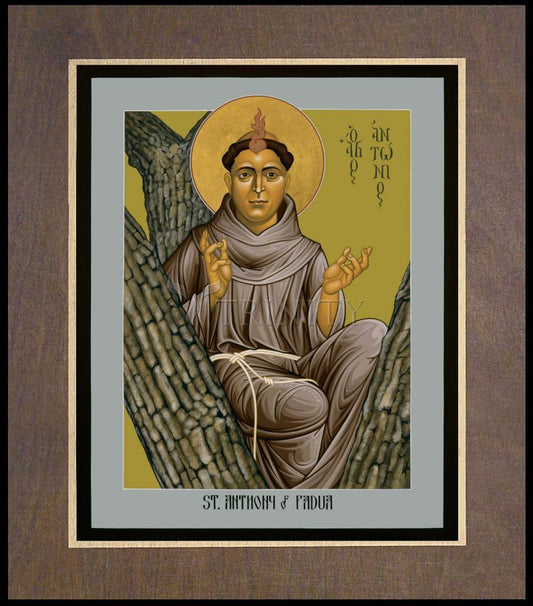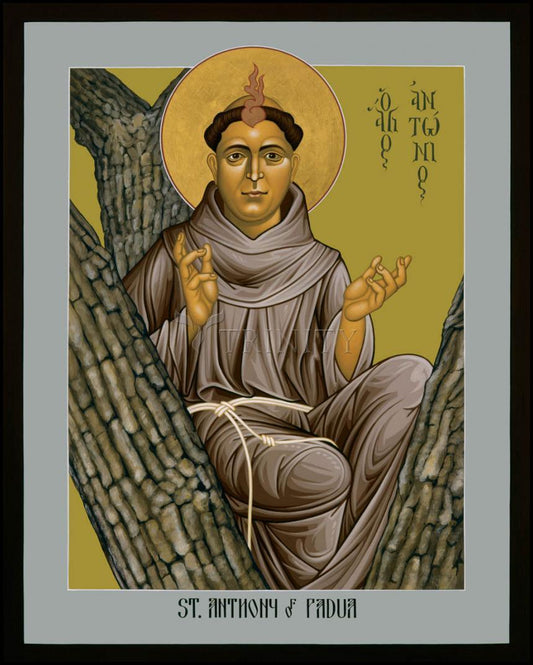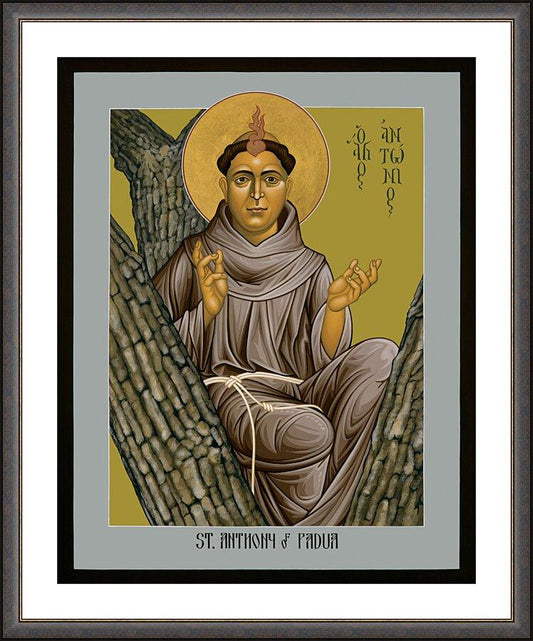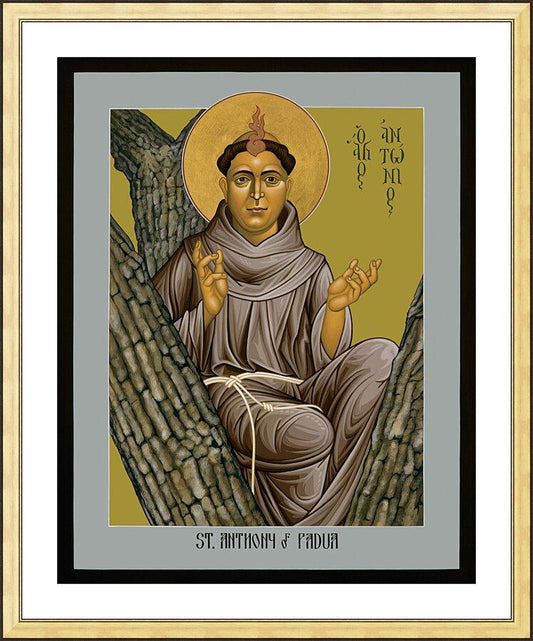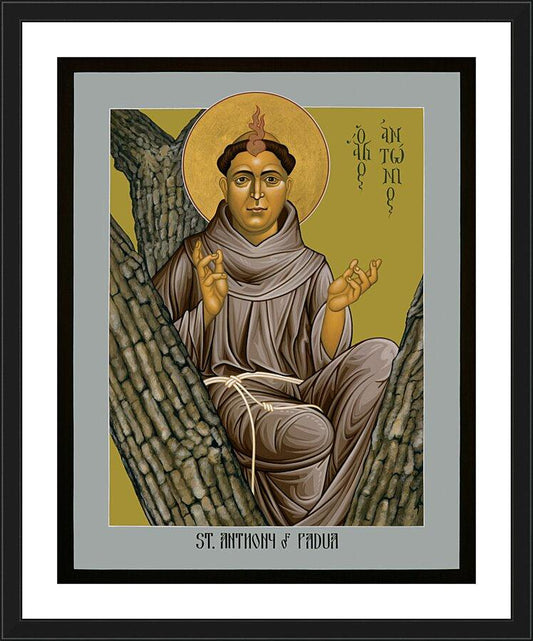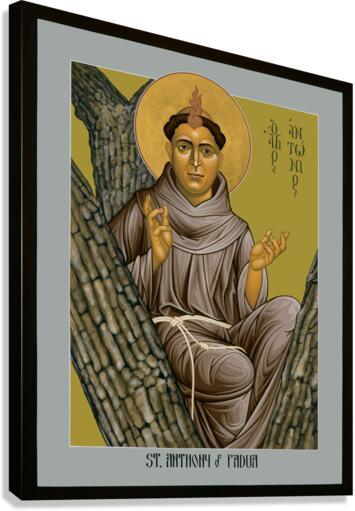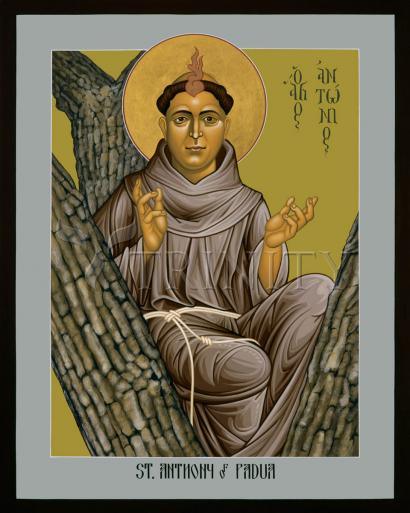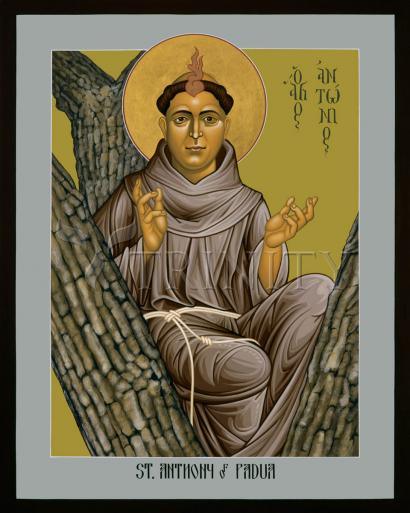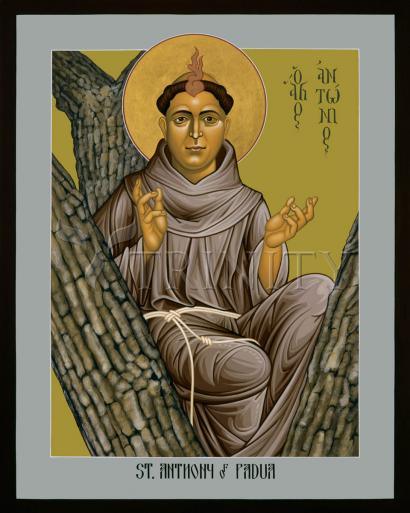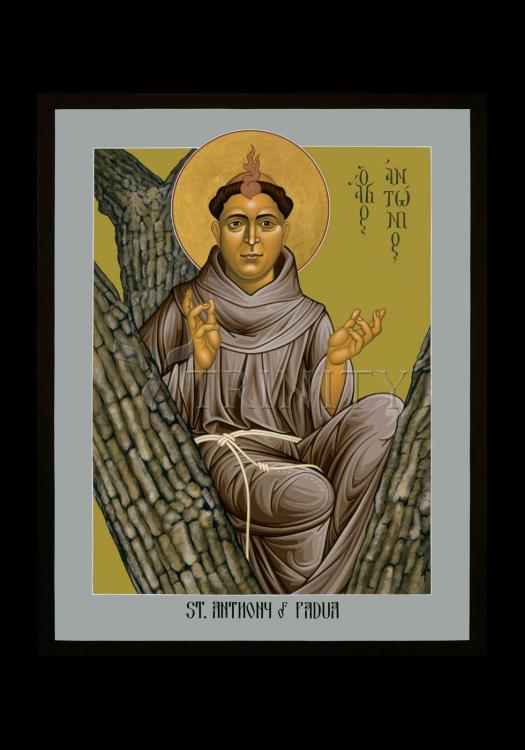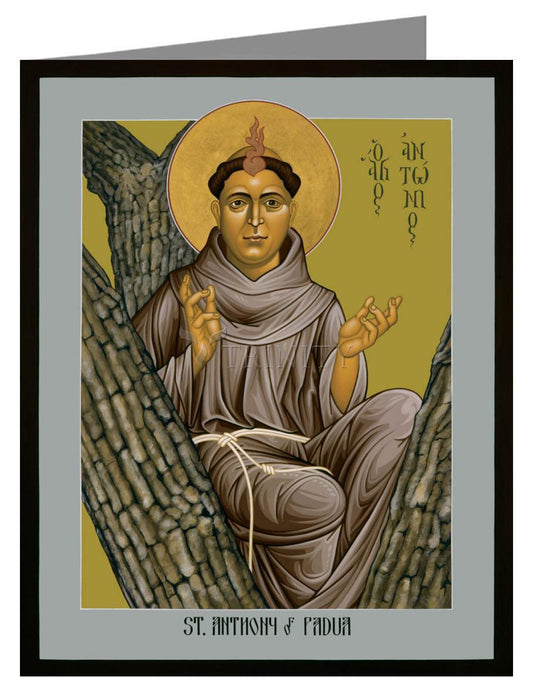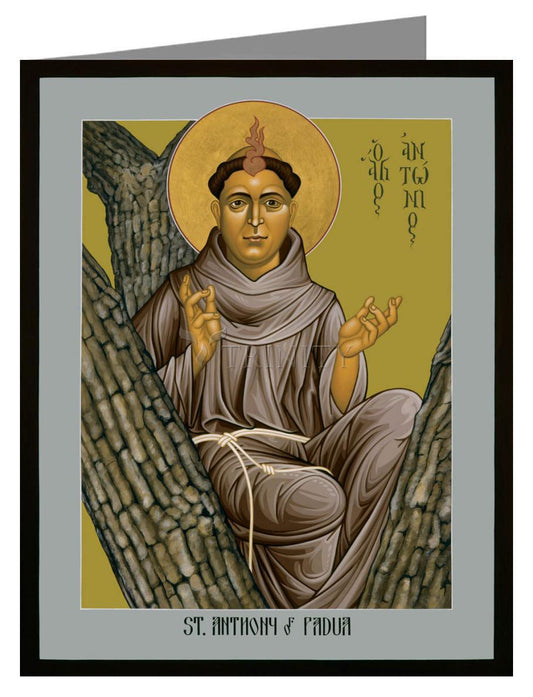St. Anthony of Padua is one of the Catholic Church's most popular saints. Saint Anthony of Padua, patron saint of lost and stolen articles, was a powerful Franciscan preacher and teacher. He's typically portrayed holding the child Jesus"or a lily"or a book"or all three"in his arms. Many people give alms to St. Anthony Bread in thanksgiving to God for blessings received through the prayers of St. Anthony.
St. Anthony of Padua's life is what every Christian's life is meant to be; a steady courage to face the ups and downs of life, the call to love and forgive, to be concerned for the needs of others, to deal with crisis great and small, and to have our feet solidly on the ground of total trusting love and dependence on God.
St Anthony is beloved throughout the world and is responsive to all people and all needs. His intercessory powers before our God are awesome.
Legends about Anthony abound. But let's turn to the known facts about him. Anthony was born in 1195 (13 years after St. Francis) in Lisbon, Portugal and given the name of Fernando at Baptism. His parents, Martin and Mary Bulhom, apparently belonged to one of the prominent families of the city.
At the age of 15 he entered the religious order of St. Augustine. Monastery life was hardly peaceful for young Fernando, nor conducive to prayer and study, as his old friends came to visit frequently and engaged in vehement political discussions.
After two years he was sent to Coimbra. There he began nine years of intense study, learning the Augustinian theology that he would later combine with the Franciscan vision. Fernando was probably ordained a priest during this time.
The life of the young priest took a crucial turn when the bodies of the first five Franciscan martyrs were returned from Morocco. They had preached in the mosque in Seville, almost being martyred at the outset, but the sultan allowed them to pass on to Morocco, where, after continuing to preach Christ despite repeated warnings, they were tortured and beheaded. Now, in the presence of the queen and a huge crowd, their remains were carried in solemn procession to Fernando's monastery.
He was overjoyed and inspired to a momentous decision. He went to the little friary in Coimbra and said, "Brother, I would gladly put on the habit of your Order if you would promise to send me as soon as possible to the land of the Saracens, that I may gain the crown of the holy martyrs." After some challenges from the prior of the Augustinians, he was allowed to leave that priory and receive the Franciscan habit, taking the name Anthony.
Born: 1195 at Lisbon, Portugal
Died: June 13, 1231
Canonized: 1232
Name Meaning: Inestimable
Also known as: Evangelical Doctor
Readings:
The saints are like the stars. In his providence Christ conceals them in a hidden place that they may not shine before others when they might wish to do so. Yet they are always ready to exchange the quiet of contemplation for the works of mercy as soon as they perceive in their heart the invitation of Christ.
"Saint Anthony of Padua
Actions speak louder than words; let your words teach and your actions speak. We are full of words but empty of actions, and therefore are cursed by the Lord, since he himself cursed the fig tree when he found no fruit but only leaves. It is useless for a man to flaunt his knowledge of the law if he undermines its teaching by his actions.
But the apostles "spoke as the Spirit gave them the gift of speech." Happy the man whose words issue from the Holy Spirit and not from himself!
We should speak, then, as the Holy Spirit gives us the gift of speech. Our humble and sincere request to the Spirit for ourselves should be that we may bring the day of Pentecost to fulfillment, insofar as he infuses us with his grace, by using our bodily senses in a perfect manner by keeping the commandments. Likewise we shall request that we may be filled with a keen sense of sorrow and with fiery tongues for confessing the faith so our deserved reward may be to stand in the blazing splendor of the saints and to look upon the triune God.
"Excerpts from a sermon by Saint Anthony of Padua



